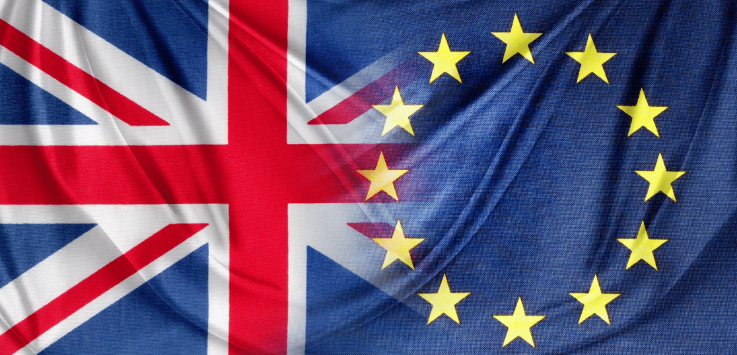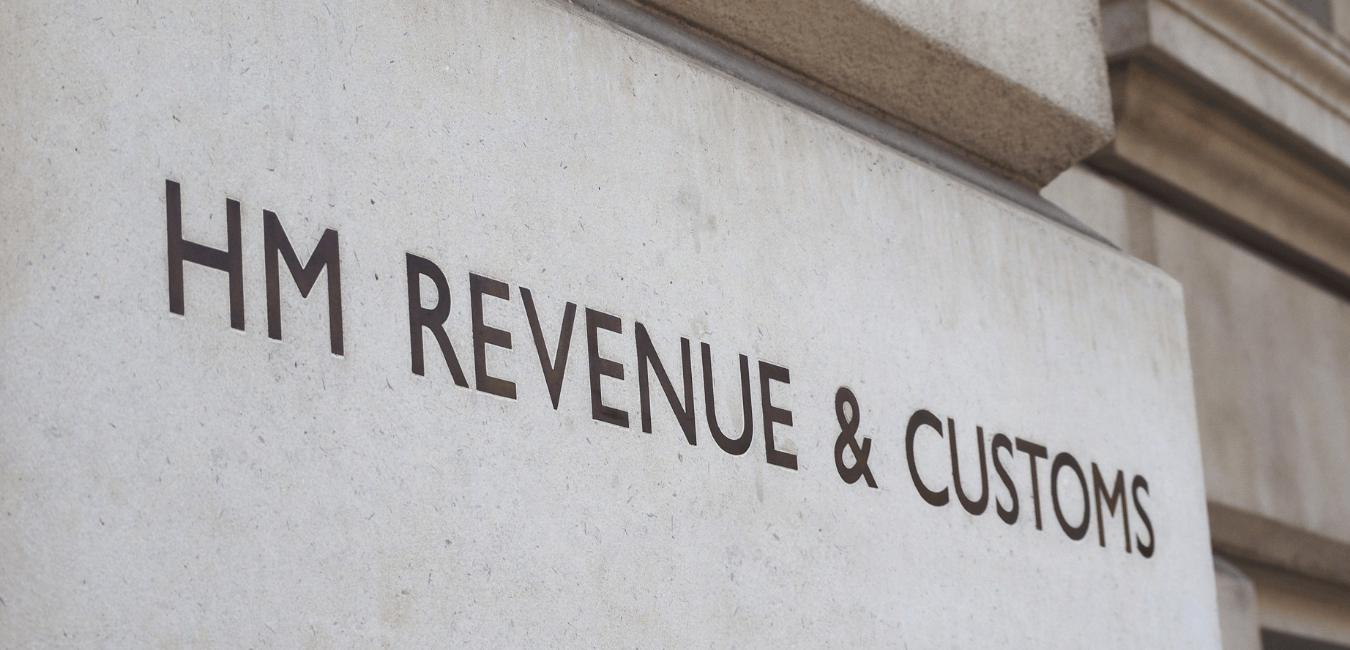Exporting to the USA Market
The USA and the UK have long been important trading partners, and the USA is one of the UK’s largest export markets for goods and services. The USA remains the European Union’s (EU’s) largest trading partner by far, even though the USA is the UK's largest trading partner. Following the UK's exit from the EU, trade agreements are now made directly with the USA, as opposed to going through the EU's single market and customs union.
The USA, being the world’s largest economy, offers enormous potential for UK exporters. There are negligible language obstacles, low regulatory restrictions, and access to the global supply chain when exporting products to the USA. The U.S. export market has a great demand for UK goods and services due to their strong reputation for quality. With the correct product or service, exporters can take advantage of a wide range of opportunities within this vast marketplace. But the United States is not a single national market; rather, it is a federal system. This implies that every state should be handled as a distinct entity with its own policies and legal requirements.
This how-to guide examines exporting goods to the USA, trade agreements with the USA, export controls, regulations, importer of record obligations, documentation, and compliance requirements. It also explores the advantages and considerations for businesses seeking to enter the U.S. market.
Support Services for Exporting to the USA
The U.S. export market is the main market for UK exporters and provides opportunities to access and reach more customers or businesses. If you're thinking about exporting products to the USA, we provide trade support services and guidance in the following areas:
U.S. Trade Agreements
The United States has comprehensive free-trade agreements in force with 20 countries. These free trade agreements offer duty-free entry into the U.S. export market for these countries exporting products to the USA.
United Kingdom
There is no current trade agreement between the UK and the U.S. Following Brexit, the UK government prioritised reaching a comprehensive free trade agreement (FTA) with the U.S. The USA is the UK's biggest export market outside of the EU as well as its biggest bilateral trading partner. On Tuesday, May 5, 2020, trade talks between the United States and the United Kingdom were formally opened.
European Union
There is currently no dedicated free trade agreement between the European Union (EU) and the U.S., despite the US being the EU's largest trade and investment partner. The current Biden administration has not pursued a comprehensive free-trade agreement with the EU.
Export Licences and Restrictions
Within the U.S. export market, some products are limited or outright forbidden, such as those that violate copyright and trademark rules. It is crucial to confirm that anything you intend to supply to the USA is permitted to be imported lawfully.
When exporting products to the USA, it may be permissible to import certain restricted goods with licences or permits issued by federal agencies. While other agencies might need a permit, licence, or other certification based on the products being imported, U.S. Customs and Border Protection (CBP) does not demand any kind of licence or permit from importers. However, CBP acts in an administrative capacity for the other agencies, which include the Department of Agriculture (USDA), the Department of Health and Human Services (HHS), and the Department of Commerce.
Exporters to the USA can obtain a US import licence or permit through a complicated process that involves several federal laws and compliance requirements.
U.S. Trade Compliance
To maximise adherence to legal requirements, U.S. Customs and Border Protection (CBP) and the importing and exporting community have a shared obligation. To fulfil this duty, CBP encourages businesses exporting products to the USA to familiarise themselves with relevant laws and regulations and collaborate with the CBP Office of Trade. This government agency protects American consumers against dangerous and counterfeit imports by confirming that imported products brought into the U.S. export market are genuine, safe, and legally sourced.
Following the passage of the Customs Modernization and Informed Compliance Act (the Mod Act) by Congress in 1993, import compliance has become a hot topic for both U.S. importers and U.S. Customs. Under the Mod Act, importers have legal responsibility for ensuring the import value, product classification, and rate of duty are correctly declared to CBP. Heavy fines may be incurred for breaking any of the applicable import laws and regulations.
Shipping Documents
When exporting products to the USA, you must make sure you have the necessary documentation to successfully clear U.S. customs. The three main documents are:
Customs Invoice (Export Invoice)
The purpose of this necessary document is to specify the type of product and its overall value when entering the U.S. export market. The Code of Federal Regulation § 142.6 Invoice requirements states that the invoice shall contain:
- An adequate description of the merchandise.
- The quantities of the merchandise.
- The value of the merchandise.
- The eight-digit subheading is stated in the Harmonized Tariff Schedule of the United States.
- The name and complete address of the foreign individual or firm who is responsible for invoicing the merchandise.
Packing List
The packing list shall contain a detailed list of the shipment contents, including quantities, items, model numbers, dimensions, and net and gross weights.
Airway Bill or Bill of Lading
An airway bill or bill of lading is required when shipping goods internationally to the U.S. export market.
Country of Origin Requirements
Unless the law specifically allows for an exemption from marking, every article of foreign origin that enters the U.S. export market must be clearly marked with the English name of the country of origin. The country of origin is the country of manufacture, production, or growth of the article.
Notwithstanding the possibility that a product contains non-originating components, rules of origin are utilised to evaluate whether it qualifies for duty-free or reduced duties under free trade agreement (FTA) regulations. When exporting products to the USA, the customs invoice for products of preferential origin should include a declaration of the country of origin.
An implementing regulation, Section 141.86(a)(10) of the Customs Regulations, requires each customs invoice (export invoice) of imported merchandise to set forth information on the country of origin of the merchandise.
US Import Duty
A tariff or tax applied to products when they are carried across international borders is known as customs duty. When exporting products to the USA, the U.S. import customs duty rate is expressed as a percentage. This percentage isn't dependent on things like weight, size, or quality; rather, it's based on the total amount spent for the item(s) in a foreign nation. Duty rates for almost every item within the U.S. export market are provided by the Harmonised Tariff System (HTS).
The Harmonised Tariff Schedule of the United States Annotated (HTSUS) is a reference guidebook that offers the relevant tariff rates and statistical categories for all goods imported into the United States. Any duty owed must be paid prior to the conclusion of the U.S. customs clearance process.
Import VAT and Sales Tax
There is no import value-added tax (VAT) in the U.S., but there is a sales tax, and this varies from state to state. U.S. tax law is a complicated system. States, counties, and towns in the U.S., as well as the federal government, may impose taxes.
Many foreign companies exporting products to the USA continue to hold the outdated belief that they are exempt from collecting, recording, and remitting sales tax on most goods sold to customers in the U.S. export market simply because they do not have a physical presence in that U.S. state. Some international companies believe they are exempt from state sales tax obligations because of a tax treaty between the United States and their home country.
The 2018 U.S. Supreme Court decision in South Dakota v. Wayfair, Inc. removed the physical presence requirement, which means that foreign sellers may now be required to collect sales tax on transactions with U.S. customers.
When exporting to the USA, who will be the US importer of record?
US Regulations
When exporting products to the USA, the Importer of Record (i.e., the owner, purchaser, or licenced customs broker designated by the owner, purchaser, or consignee) must file customs entry documents for the goods with the port director at the US port of entry into the U.S. export market.
The Customs Modernization Act of 1993 established the notion of "reasonable care." This requires the Importer of Record to enter, classify, and establish the value of imported items, in addition to providing any other information that may be required. The information provided enables U.S. Customs and Border Protection (CBP) to appropriately calculate tariffs, gather precise data, and ascertain whether all legal responsibilities have been fulfilled. The Importer of Record is ultimately in charge of this process; however, a customs broker or other specialist can assist.
US Importer of Record
It is important to confirm who will be the US Importer of Record within the U.S. export market, as that will be the entity (person or organisation) responsible for all entry documents required by customs authorities for imported goods at the US border. Usually, the entity that owns the imported goods at the moment of their entry into the USA is the importer of record. When exporting products to the USA, the Incoterms® 2020 rules agreed upon within the contract will normally clarify who will be responsible for the customs entry as the U.S. importer of record.
Foreign Importer of Record
When exporting products to the USA, the US customer may require the products to be delivered on Delivered Duty Paid (DDP) Incoterms into the USA. In this case, the foreign exporter is required to act as a foreign importer of record. The use of DDP Incoterms is frequently requested to make purchasing imported products simpler for American businesses and consumers when buying products from an overseas supplier.
The foreign exporter will need a Customs Assigned Importer Number to become a foreign importer of record in the United States. A customs bond will also be required to cover the imports into the U.S. export market. An importer number and a customs bond can be obtained by the foreign importer with the help of a US-licenced customs broker.
US Ultimate Consignee
If the foreign exporter is required to act as the foreign importer of record when exporting products to the USA, they will need to name a U.S. business entity to act as the ultimate consignee of the shipment within the U.S. export market. The recipient of the products at the final US destination is known as the ultimate consignee, and this US recipient must have a US address and tax ID number.
Enabling Customs and Border Protection (CBP) to have knowledge of the recipient and destination of imported goods in the United States is one of the main goals of the ultimate consignee requirement.
Burden of Reasonable Care
- Statutory obligations make the Importer of Record “accountable” for the declarations made at entry. However, while the entry statute clearly identifies the “accountable “party, liability for penalties may attach to any culpable party under civil penalty statute, 19 U.S.C. 1592 (a).
- U.S. Customs and Border Protection (CBP) auditors may review records where the auditee is the Importer of Record and/or the Ultimate Consignee.
- Within the U.S. export market, the Importer of Record and the Ultimate Consignee will be liable for maintaining the records required by 19 U.S. Code 1508 (Recordkeeping).
- The Importer of Record is always “accountable.” for the customs entry. If the Ultimate Consignee provides the Importer of Record with information that is material and false and that information is used to make an entry, the Ultimate Consignee may be culpable under 19 U.S.C. 1592.
Dealing with Customs when Exporting to the USA
In the USA, customs clearance agents are known as customs brokers. When exporting products to the USA, the U.S. Importer of Record or the Foreign Importer of Record must use a licenced broker to complete customs entry procedures, admissibility requirements, classification, valuation, and the rates of duty and applicable taxes and fees for the products they are importing into the U.S. export market.
U.S. Customs and Border Protection (CBP) licences, regulates, and gives authority to private individuals, partnerships, groups, or businesses operating as customs brokers to help importers and exporters comply with federal import and export regulations. Brokers charge their clients a fee for this service and submit the required paperwork and payments to CBP on their behalf. Brokers need to be knowledgeable about import merchandise entry procedures, admissibility requirements, classification, valuation, duty rates, and applicable taxes and fees.
To perform customs business, groups, partnerships, and corporations need to hold a broker licence. To be eligible for a licence, each of these companies needs to have at least one officer, partner, or associate who is licenced separately.
Exporting to the USA: Consulting Services
Exporting to the USA can be challenging due to a rapidly evolving business environment with many risks, but it also offers enormous opportunities for those who navigate it correctly with the help of an export consultant. Making sense of complicated U.S. export regulations can be time-consuming and very costly when businesses get it wrong. Our export consultancy can guide your business through every aspect of exporting products to the USA, making sure that your business is structured to maximise the benefits of trading with the U.S. export market.
We provide flexible and tailored professional export consulting services to reduce costs, optimise exports to the USA, and ensure compliance with U.S. customs regulations.
Our Blogs on Exporting to the USA
Here you can read about our individual international trade projects that we have managed and see how our international trade resources have helped with the process of exporting products to the USA. Our international trade case studies detail the issues identified and the U.S. export market advice we provided.


Get in touch for guidance on exporting products to the USA.
Please complete this form for advice on the exporting to the USA, and we will get back to you.
Contact Us
We will get back to you as soon as possible.
Please try again later.



